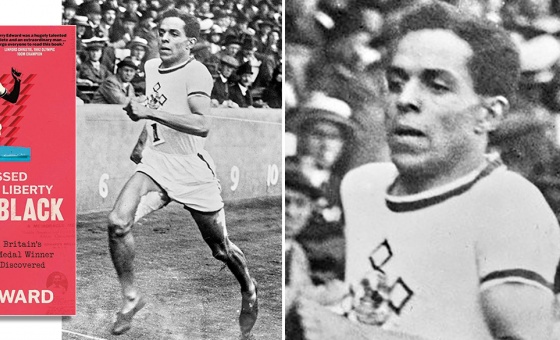This is the last article you can read this month
You can read more article this month
You can read more articles this month
Sorry your limit is up for this month
Reset on:
Please help support the Morning Star by subscribing here
Ari Brown
Ultimate Frontier (Delmark DE486)
Venus (Delmark DE504)
Live at the Green Mill (Delmark DE577)
Chicago has had a compelling effect on some of its home-grown and home-nurtured saxophonists from Van Freeman to Fred Anderson to Ari Brown.
They don't want to travel too far from it and spend a musical life touring and gaining renown. Instead, they would rather stay put within its streets and local venues and build their music alongside their community, validating their city, its people and their music.
Their lives and their recordings too become musical affirmations and almost organic extensions of their Chicago home.
Brown was born in the windy city in 1944 and grew up in Chicago's blues-baked South Side. His years at Wilson College found him in the midst of classmates who later became the jazz eminences of their generation - drummer Jack de Johnette and radical hornmen like Henry Threadgill, Roscoe Mitchell and Joseph Jarman. He served an apprenticeship as a pianist in R and B and soul bands during the '60s backing, among others, The Four Tops and BB King, but was a late developer on the tenor saxophone, turning to its power under Mitchell's persuasion when he was 21.
In 1971 he formally joined Chicago's avant-garde when he became a member of the locally based Association for the Advancement of Creative Musicians (AACM), but in 1974 he lost his teeth in a car crash, reverting to the piano before he recovered use of the saxophone.
He established a formidable local reputation, playing with McCoy Tyner, Lester Bowie, Von Freeman and Anthony Braxton before becoming a regular part of the trio of Chicago percussionist Kahil El'Zabar in 1989.
Ari has made a number of records as a sideman of El'Zabar, but only three albums as a leader with the Chicago-based Delmark label. His first, made when he was 52, was Ultimate Frontier of 1995, which he cut as part of a Chicago quartet - his brother the pianist Kirk Brown, bassist Yosef Ben Israel and drummer Avreeayl Ra.
The opener is the pacy Big V where Ari's big, warm tenor saxophone tone is immediately evident as his brother comps beside him and digs into his own chorus like a natural extension of the horn. Israel has a pinging solo above Ra's clipping drums. Lester Bowie's Gumbo Stew is a salute to one of Ari's erstwhile maestros and he scorches through it in a continuous rasp like a huge and ecstatic insect.
Six out of seven of the album's tracks are Ari's compositions and One for Luba is perhaps the most memorable, beginning with unaccompanied tenor played with a slow, balladic intensity and a beautiful thickness and solidity of sound. Meeting Time, which follows, is very much that - four Chicago men in earnest jazz palaver, their sounds burning together.
Ari turns to the piano on the title track, his eerie solo notes creating a certain solemnity, enhanced by the later unison of Ra and Israel. The sound changes on Sincerity, where Ari's soprano regains his saxophone warmth and joy, and the finale of Motherless Child revives tradition and history as he moves between the soprano and an earthiness of tenor to delve into his people's story.
Three years later and within the same quartet came his second Delmark album Venus, dedicated to his late girlfriend, a dancer and quilt-maker. He also salutes Coltrane (Trane's Example), Mitchell (Roscoe) and Rahsaan Roland Kirk (Rahsan in the Serengeti).
His humorous nod to pianist Willie Pickens (Oui Lee) is laid-back saxophone at its most expressive and contrasts starkly with the praise songs to Coltrane and Mitchell which are ignited by love and inspiration, with the pounding subtlety of Ra in full hue and cry. Venus dances through her tune alongside Ari's palpitating horn and Israel has his long and deep moment on Baldhead Gerald with Ari's tenor at its most gushing and Kirk swinging loosely through his solo.
The brothers make a reflective duo through Oh What a World We're Living In and Ari, emulating Rahsaan himself, plays soprano and alto simultaneously in Rahsaan in the Serengeti and sounds like a whole reed section. It's a momentous finale to an album of powerfully wrought tributes.
In June 2007 Delmark recorded two live sessions with the same enduring Brown quartet plus trumpeter Pharez Whitted and percussionist Dr Cuz at Chicago's Green Mill nightclub. There are resonating atmospherics at work, particularly in the interplay and harmonies of the horns, Ra's restless skins, Ari's earthy and guttural solos as in Richard's Tune or Two Gun V, Whitted's upward reach and Kirk's constant empathy with his bandmates and ingenuity as a soloist.
It is Chicago jazz, the people's music, at its most life-driven, skilful, generous and democratic, led by a man whose music has never stopped being a part of his city and its constantly evolving jazz tradition.
Listen to the beauty and excitation of the closing track Evod, turn its letters around and know what the true spirit of the sounds are telling all of us.








